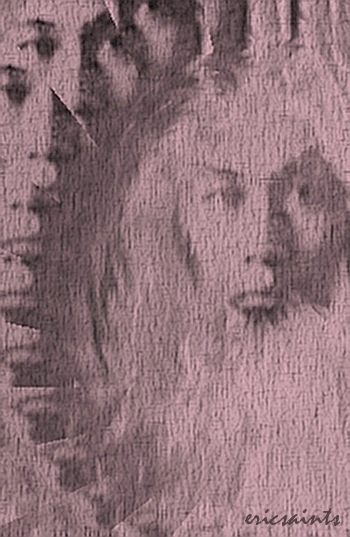
“Lean was like Gandalf …”
My nephew, Ruben “Benc” Canlas, is a member of the Tolkien society. He was also an activist in the ’80s, in Diliman, a blogger, and an admirer of the martyred political leader Lean Alejandro.
Writing about his world the first time he read “The Hobbit,” Benc identified the year 1983 as “pivotal.” Sometime in December 2006, I commented on this by email and he posted it in his blog “The Couch Kamote”, for me to stumble upon only a couple of months ago. I’m reclaiming it and posting it here, in my space.
-o0o-
Alright then, Benc, I’ll bite. Lean and Tokien is it?
I was with Lean in the 1981 University Student Council (USC); he was our Vice Chairman. One of his “gifts” to me was this new appreciation for things British. First were Dunhills (nabibili ng medyo mura sa Shopping Center, doon sa stall na meron pang maliit na mezzanine). Next were Chariots of Fire and Galipoli, both in lousy betamax format. Then came Tolkien in yellowed pages and ripped but lovingly scotchtaped paperbacks.
(There was actually a Tolkien book in the house in Quezon City and I remember it gathering dust on the shelf there, lying unopened since the long night before Iluvitar wove his music. But I found the shorter Reader’s Digest articles more readable then.)
I digress.
With the Tolkien books Lean lent me came precise reading instructions that I had to take an oath to obey. First, the trilogy, then “The Hobbit” which was to be read at least twice. Only then was I to wade into the genesis (how do you spell “Silmarillon”?) but always with the four other books close at hand — for rapid cross-referencing, you see.
That was it. I was hooked. I abandoned trying to understand Feuerbach’s historical materialism or trying to find something to like in Mao’s poetry. I think I even lost interest in your Tita Acay for a while (I was contemplating on courting her na that time). It was Tokien for me, 24-7.
For bringing me to Middle Earth, I repaid Lean with a draft of a Student Council statement on some raging national issue then. My proposed title was “An Ancient Evil Lurking in Deep Places” which was, of course, an allusion to Gandalf’s description of the Balrog, roused by the orcs in their raid of Moria (owing to Balin’s obsession with precious stones and other shiny things), and my proposed last line was “these are dark times and strange things happen in dark times.” Also, it came with drawings of dwarves and Hobbits that we commissioned from Zaldy Zuno, Collegian artist and creator of Tibo Iskolar ng Bayan (the dwarves looked somewhat like the seven companions of Snow White though)!
That statement was a hit! As intended, style-wise, it was a clean break from the “kunot-noo” writing then emanating from the various centers of student activism even in UP. And more importantly, it was a conscious attempt to be more “pop”, to critically engage the mass of students at their own level rather than forcing them all at once to ascend to the consciousness level of the CPP Politburo. And this because of Tolkien!
I remember Lean rushing with freshly mimeographed copies of that piece of Tolkienese propaganda down the hall from the USC offices at Vinzons Hall, intending to show them to Roan Libarios and JV Bautista at the Collegian office. They weren’t there so he instead went up to the Office of Student Affairs and pestered Louie Beltran (then Dean of Student Affairs and Lean’s electronic chess playmate) into reading it.
Lean was our resident Istari, our personal Gandalf; and I think he was tickled pink playing that role. He was impatient and had a temper with the Peregrins and Merriadocs surrounding him and yet he never treated anyone with condescension. He was never unkind and was generous to a fault, often treating us to small feasts at Trellis the same day he received his monthly allowance from his father in Saudi. He spoke in riddles and cryptic one-liners and enormously enjoyed the consequent bewilderment of our simpler minds.
On a deeper, perhaps even unconscious, level, Lean was like Gandalf in two ways: First, he had a profound appreciation of how the past determined the future. Second, he had a gnawing fear of not understanding and not knowing. So Lean was always studying the Elder Days and the passing of the ages, for clues as to how this society is moving (and how it may be guided) through an uncertain time, to the other side.
He was always after us to go beyond the Maoist templates dominating activist underground schooling. He had us look even farther back, to Russia and the socialist movements in Germany and England, and of course to revolutionary France, to the Jacobins and Robespierre. He would insist on us reading Marx and Lenin themselves, without made-in-Beijing spectacles, while at the same time acquainting ourselves with Cuban, Vietnamese, Nicaraguan and other post-Mao experiences.
He never tired of reminding us that the dramatic risings of the early ’70s would not have been possible without the nationalist scholarship and relatively quiet intellectual ferment of the late ’50s and early ’60s.
I think it was one of his missions to recreate that ferment in UP in the ’80s. But he would never venture into this without first attempting to know and understand. So what does he do, he and Jojo Abinales hire your Tita Acay in the summer of 1982 as their paid-a-pittance researcher for a comprehensive study on the UP Student Movement that he was preparing for Third World Studies.
That study was not to be completed, unfortunately, because he was again conscripted to run for the USC, this time as its Chairman. I was Chairman of Samasa that year and we swept the elections. Lean Alejandro was Chairman of the UP Student Council and 1983, your “pivotal year,” was upon us. Thereafter, your Tita Acay and I went to law school and Lean went to his Gorgoroth outside Diliman, and beyond that, to his glory and his peace.
Sabi nga ni Bilbo:
Now far ahead the Road has gone,
Let others follow it who can!
Let them a journey new begin
But I at last with weary feet
Will turn towards the lighted inn,
My evening-rest and sleep to meet.
So there. I have purged myself and I have reached catharsis. I am at peace and I go to meet my sleep.
